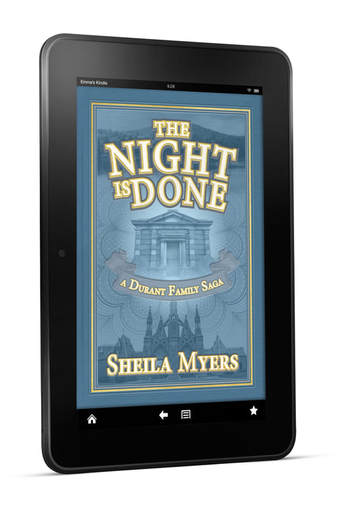
It was not entirely unflattering, not glowing either, but I appreciate anyone taking the time to post on social media their opinion of my chronicle of the family of the famous robber baron Dr. Thomas C. Durant. However, I realized while reading it, the reviewers were dismayed I ended the story abruptly because they wanted to know more about what happened to Durant family siblings.
So to be clear, readers, understand this: I am writing a trilogy. I had to. I don't like reading long books. Maybe that's why, in a recent visit to the library, I picked up The Gilded Hour, Sara Donati's 737 page fictional tome about two spinsters, both medical doctors working in New York City in 1883. I started reading it against my good judgement and have not been able to put it down since. This does not bode well for me, as I have to finish other books for work, and for my monthly book club meeting.
In all fairness, I can't behoove any author who chooses to write these long works of fiction. If one has the time and inclination, one can get caught up in a time and place for hours, days, and at the rate I read, weeks.
But when I had to decide what to do with all of my research, I decided early on to write a trilogy. I had too much material to cram into one book, or so I thought, knowing I favor books that are 300 pages in length. And there has been an advantage to me to do so.
Firstly, I keep discovering new material. Old newspaper articles that I may have missed before pop up in my research to reveal that one of my characters spent time training to be a nurse in England. An archivist for New York City court emails me he found a long lost divorce case file, it took me months to track it down. I had time. It all unfolds out in book three.
Secondly, the brief interlude between books allows me the luxury to mull over my characters and their motivations. A recent breakfast meeting with one of my beta readers changed my whole perspective on how I was planning to write the narrative of the downfall of one of my main characters in book three. We contemplated: was he an egotistical maniac or a true artist at heart?
These types of meandering thoughts come at a snail's pace. They don't just pop up in my head without a lot of debate and contemplation. I like the process of peeling away at the characters in my story, one book at a time. And I like the idea that my novels are readable in one month for those people, like me, who live busy lives.
I'd hate to think people might be racing through my descriptive narrative to get to the end of the story, which is what I sometimes find myself doing when I become impatient with a novel. Or maybe I'm just spoiled, like so many people these days, expecting instant answers to my question: what will happen next?
To be honest, I'd have to admit that at least the author of The Gilded Hour provided me closure in one reading. My poor readers had to wait until I figure out how to write the last book in the trilogy. Lucky for them, the third book, The Night is Done, is now available.
 RSS Feed
RSS Feed
